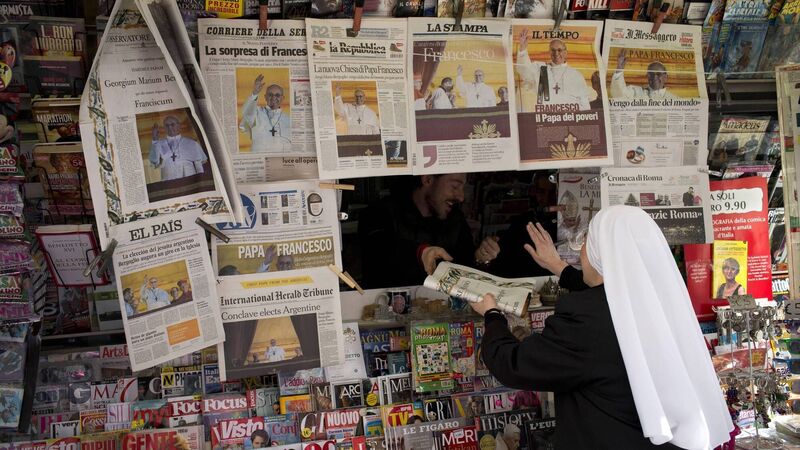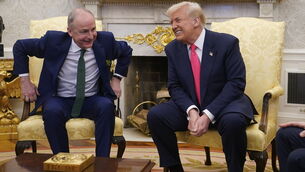Colin Sheridan: The church told us to know our place — maybe now it finally knows its own

A nun buys one of the newspapers covering the death of Pope Francis in Rome last month. Photo: AP/Oded Balilty
Two weeks ago, thousands of middle-aged Irish men and women performed a sharp intake of breath as news broke about the passing of an 88-year-old Argentinian man called Jorge Mario Bergoglio.
The reason for the intake would've had little or nothing to do with the personality of the deceased who was widely regarded as a humble, caring man, and everything to do with the church he led for a dozen years.















